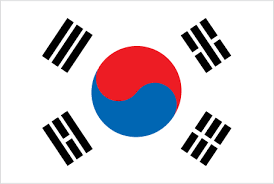Although Korean food has evolved through many centuries, the people of Korea maintained the belief that food and medicine have the same origin and have the same function. They also believe that health and illness come from how you prepared the food and how you consume it. These two beliefs play a crucial role in the development of Korean medicine as they believed that medicine should only be used after the food has failed.
One of the key things to understand traditional Korean food is fermentation, a metabolic process that helps food mature so that it has improved taste and nutritional properties and can be stored for a longer period. two examples of food that was developed with this in mind is ganjang which is soy sauce and Doenjang which is soybean paste. These fermentations can take anywhere from several months to several years. Fermentation is such a key factor in taste and flavor at homes and in restaurants.

Doenjang Jjigae (Soybean Paste Stew)
In modern days, Korea shares many similarities with other Asian cuisine such as rice and vegetables and cooking methods such as stir-frying, steaming, and braising. Like with all Asian countries, Koreans also eat a lot less meat compared to western world. One characteristic to describe their food is that it is often spicy. Red pepper paste, green onion, soy sauce, bean paste, garlic, and pepper are just some of the things they use to season their dishes. Korean people are often skinny because their meals consists of different kinds of vegetables and not many meat in their diet. In a full course meal in Korea, it usually includes several large dishes that is complemented with as many as twenty side dishes. Traditional Korean meals usually includes soup such as Kamja Guk (Potato Soup) and Hin Pap (White Rice). A common and popular side dish is Kimchi which is often very spicy and is considered a national dish.


Kamja Guk Kimchi
Meals are considered really important to the Koreans and as such, most of the time is spent on the preparations. In fact, they find eating so important that they put all their concentration into eating and find it impolite to talking while eating a meal. They hold the conversation for the end of the meal. Usually, the dishes of food is placed in the middle of the table and each person at the table is given a bowl of rice.
The Korean people’s diet has adequate nutrition with the World Bank reporting less than one percent of the population is malnourished and nearly all have access to adequate sanitation and safe drinking water.
Sources:
http://www.korea.net/AboutKorea/Korean-Life/Food
http://www.foodbycountry.com/Kazakhstan-to-South-Africa/Korea.html

Very insightful! I knew of kimchi prior to reading but not much more than that. I didn’t even begin to consider all the ramifications of a country’s primary diet. I’m not much of a foodie myself so the Korean perspective might be my introduction to worldly cuisine. I was most surprised that there are sometimes over 20 side dishes at one meal. I cannot imagine how large their dinner tables are. Thanks for a great article
LikeLike
I learned a great deal about Korean food in this post. I had no idea that there could be up to twenty side dishes!
LikeLike
Not knowing much about Korean cuisine, I think their strategy of kind of combining the food they eat and medical work together is very interesting. It is almost like they are preventing sickness or diseases simply by watching what they consider to be healthy and putting it into their foods. I feel like if everyone ate like this then less people would have conditions such as diabetes or other health related issues. It is very interesting to see how much Korean culture relies on the food they eat knowing all of this I imagine they do not like Mcdonald’s that much. Sorry if I sound ignorant, but to me fermentation sounds like healthy GMO’s because it makes the food last the same or even longer but with more nutritional value enhanced. When you mentioned that Fermentation can last up to years did you mean in can take years to make? Or it can take years till the ffo produced goes bad? I honestly would have never thought that Korean food would be spicy, but I guess that is a misjudgment on my part. I feel like Korean culture really revolves around their meals as you mentioned that they do not talk while they are eating which is really interesting because I would never imagine someone being able to just focus on the food they are eating the entire time of their meal. I think it is important for people to be careful with what they eat and I find Korean culture to be very smart in how they eat because it seems that due to their eating they live a healthy lifestyle.
LikeLike
Very interesting post. How long have their concepts on medicine been around for? Because the notion that food can be used as medicine seems very advanced. Not only is it true, but only modern medicine has been able to confirm what early nutritionists suspected. I would be surprised to hear that early Koreans had this sort of knowledge. By comparison, Europeans had no idea that vegetables were good for you (in fact, the staple in Europe is, and always has been: bread, meat, and cheese). Also, I would like to thank you for that brief cultural note at the end. Focusing on your meal, before conversing with other people makes quite a bit of sense, but it differs so greatly from all of the other cultures I’m familiar with. In America, France, Tunisia, etc. dinner is meant to be a social event. Everyone speaks before, during, and after their meal. I’m glad I now know just how rude this sort of behavior is in Korea, so that if I ever do decide to visit the country, I don’t find myself speaking in the middle of a meal.
LikeLike